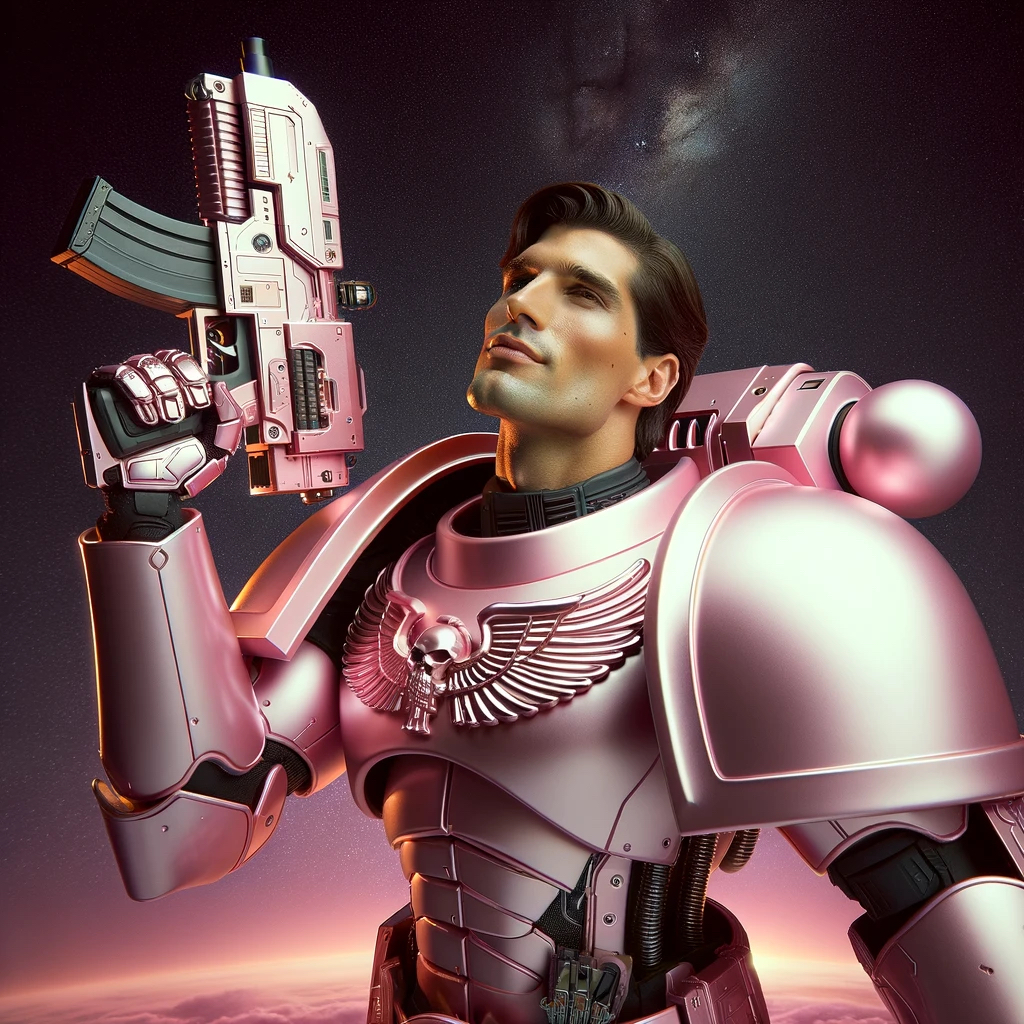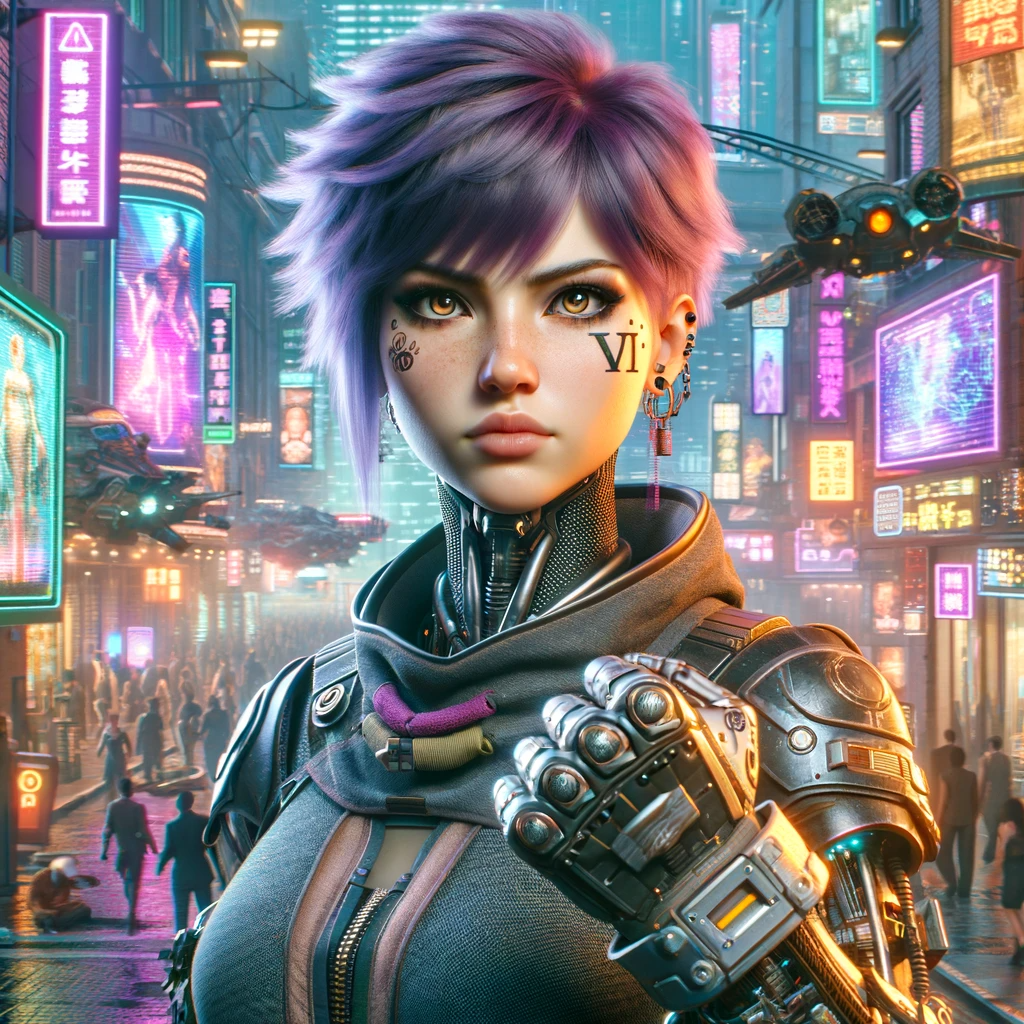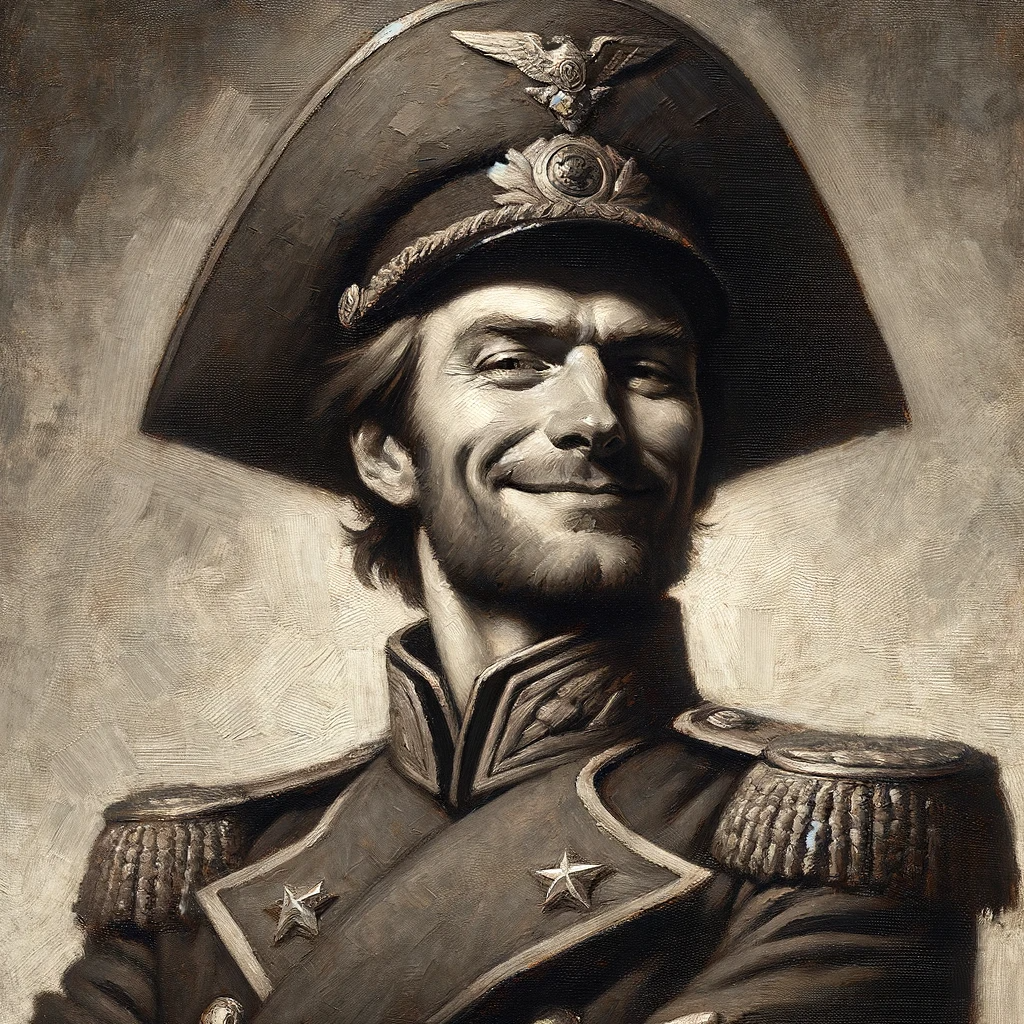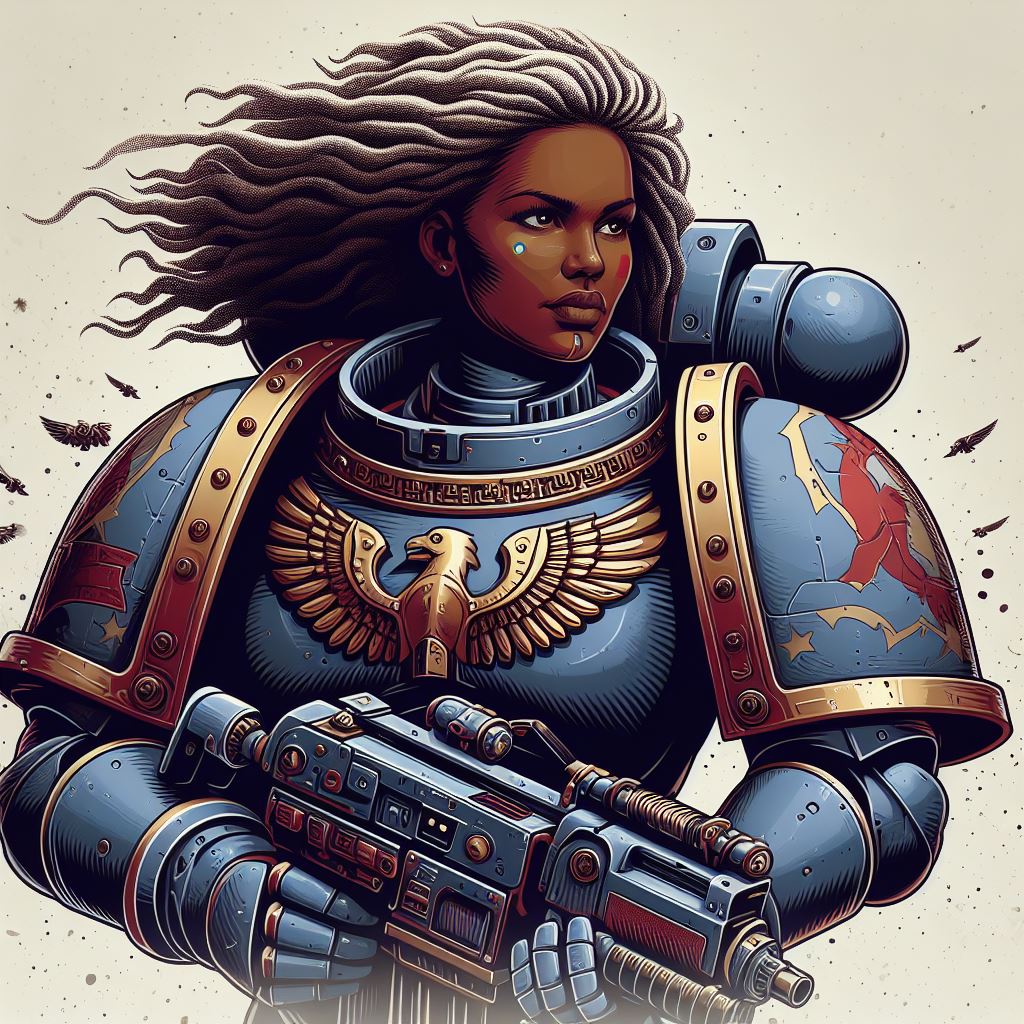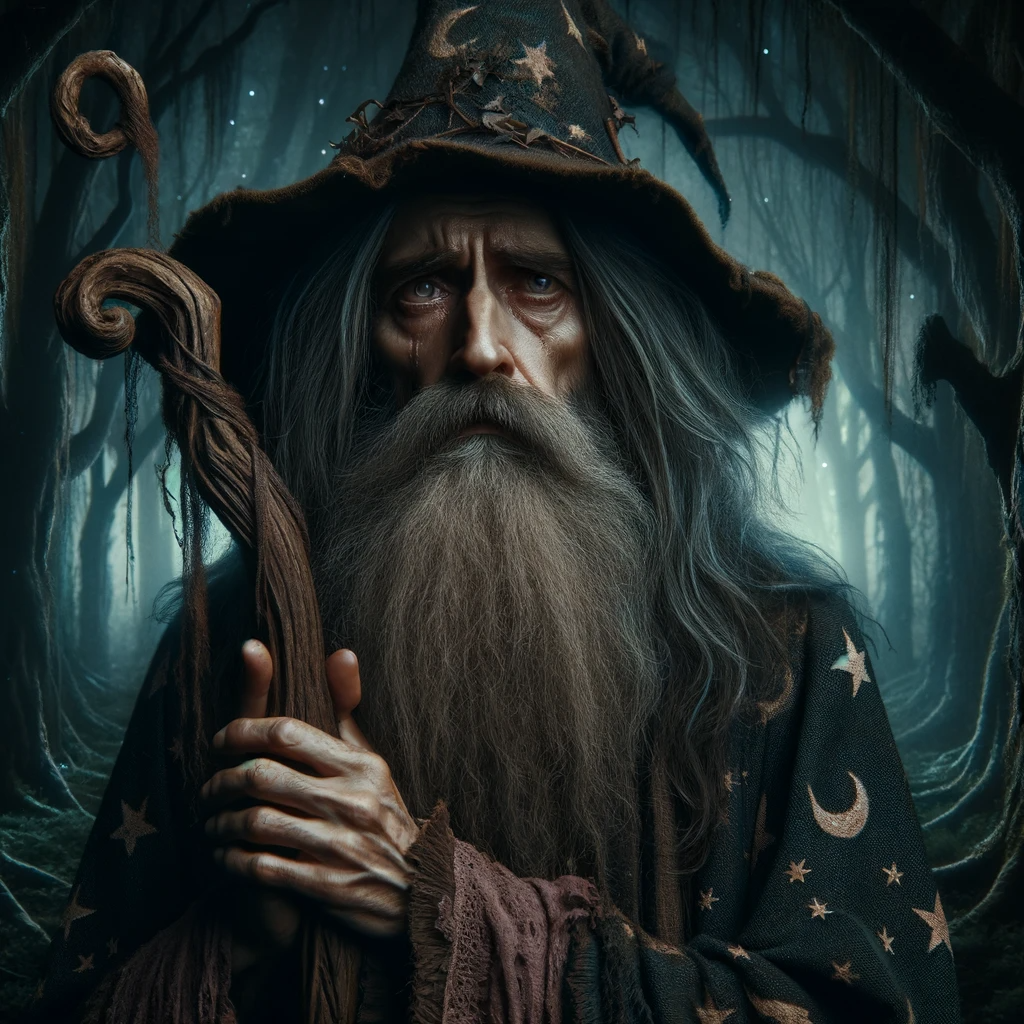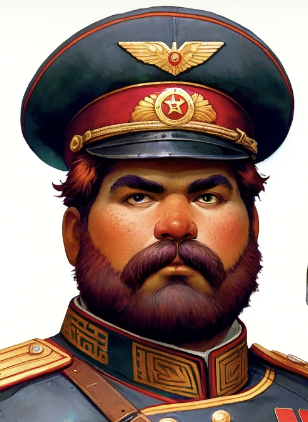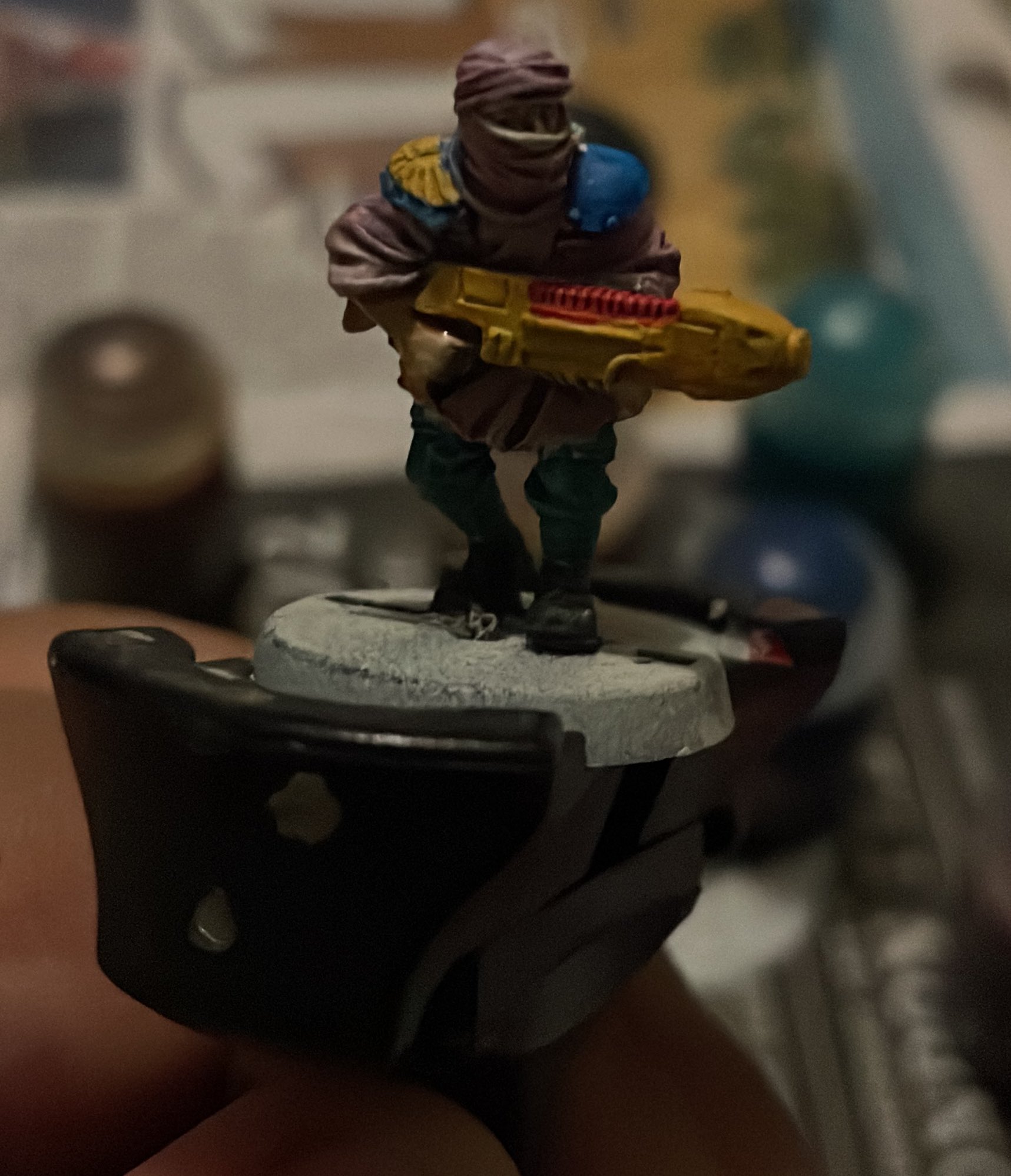Bolter Porn
date: 15/04/2024
A common form for lore - fictions or fanworks or etc - to take, in the 40k fandom, is what people refer to as "bolter porn". This is fairly lavacious descriptions of sci fi action scenes. Lavish descriptions of bodies torn apart as the muzzle flash of bolt guns firing into them shed a near erotical light on the whole scene. To a certain extent, I get it: this is a war game, presumably people interested in it are interested in depictions of combat. It seems about as safe a presumption of common interest as the writers can make. The problem is that it is almost always incredibly boring.
This is certainly not because I am uninterested in science fiction action! I often tell people I think the trench run sequence of A New Hope is just about perfect cinema. Starship Troopers, Aliens, Terminators 1 & 2, and Predator, all rank among my favourite films. And it is not even just when visually displayed. The battle of Yonkers in the book version of World War Z is, I think, masterfully done stuff. As is the Thunderchild's engagement in War of the Worlds. And later in this post I will be able to name some examples of 40k bolter porn done well. But despite my appreciation of the genre there is no denying that the vast majority of what I read in 40k fiction is just incredibly dull. I genuinely find myself just skipping sections rather than have to put up with 10 more paragraphs of "And then Honour Capitain Bigus Dickus bravely shot a gun that went pew pew in a manly way, the lithe eldar bodies exploding around him in a shower of not-semen." I get it. So short reflections here on what makes this work well and why it usually falls flat.
Obviously part of the issue is just that most writing is bad. That's just the way of things. Most of everything is bad. Everything I do is bad, so I can hardly cast any stones here. So it goes. I do think there are issues even on top of that.
Related to the above there are also certain obvious rules of good writing that are all too frequently violated. Why, after all, do Predator or Aliens or cetera work so well? In very large part because you are attached to the characters and their situation. I often say that the lightsaber duel between Vader and Luke in Return of the Jedi is my favourite lightsaber fight in the entire Star Wars franchise. (Yes yes the hallway scene in Rogue One and the duel of the fates in Phantom Menace are also good.) Clearly it is not the most acrobatic or visually exciting, far from it. But the moment it represents -- seeing how for all Luke's training and development to this point Vader is still able to near effortlessly tear him down -- is powerful, the characters and their struggle and the narrative revelation it represents have all come together to make this more than just swords clashing. Think of Inyigo Montoya's last duel in Princess Bride! Or - and I can't believe I am saying this - Puss in Boots' final duel with the Wolf in his recent film. (Those examples might give the impression this takes a lot of work to build up but I do not think so: via some quite simple expedients both duels in The Buried Giant feel impactful, despite the characters only recently having been introduced in the first case.) All too often the 40k books fail to do this basic thing, actually make me care about the situation before throwing me into it.
I can actually think of an example of combat in 40k verse done well with this in mind. Towards the end of Valdor (mentioned below! Some spoilers following) we see one of the disaffected former soldiers of the unification wars step up to battle a newly unleashed Astartes. For obvious reasons things do not go well for him. But the brief exchange feels meaningful because you have come to understand him and his perspective up to this moment, and it even feels somewhat glorious that he should manage what he does in his futile raging against the light's fading. Likewise the last thunder-warrior's duel with Valdor himself. That book in general was much better written than is typical in these cases so perhaps it is not to be found surprising.
But while that can be interesting I feel as if the main use of combat in written media has to be setting establishing. The Battle of Yonkers contains relatively little description of, like, actual combat. But it doesn't need to in order to be thrilling. Because by telling us how the government was trying and failing to contain the crisis we are learning very important things about the setting. You see the tragedy not just as a local disaster but as the true herald of catastrophe that it is meant to be. We learn about mindsets and come to see consequences as inevitable and those are what really sustain our interest, the combat is just one means among many to do this. (It has points in common with well written sex scenes here. Of course the erotic thrill may be reward enough, but even where that is not really the focus if done well they can still be worth the read for what they tell us.) If your setting is worth learning about at all then this can be an exciting way to do that.
All too rarely this is a virtue which good 40k books manage to attain. Once again the Valdor book manages this with the doomed former soldier's recollections of first seeing a Custodian do battle. I reproduce a quote here:
Achilla even saw one of them once, from a distance. He should have been concentrating on his own fighting – advancing up the course of a dried-out irrigation canal to assault a derelict pumping station – but once you caught a glimpse of one of those golden devils, everything else seemed slightly pointless. He’d used his old augmetics to get a better view, and so from a range of almost three kilometres he’d watched the whole thing unfold.
He couldn’t even count the number of enemies that it had killed. He couldn’t even really see how it was doing it, the pace was so fast. The devil wasn’t using a gun, like anyone sensible, but some kind of electricity-wrapped spear. It was carving through solid stone, slashing through the masonry as if it weren’t there. A rusty old tank was kicked over – kicked over – and then pulled into shreds of burning metal.
Achilla found himself appalled. That level of naked power was… unfair. There could be no enjoyment in it. There was no chance that the other one might strike a lucky blow. There was no indication at all that any money was changing hands with those things, which was an aberration – fighting for its own sake, without a decent reward for services rendered, was the most perverse inclination of all.
So he’d turned the augmetic off, and got back to what he was supposed to be doing. And yet, he never forgot. In the cities, they were flying those eagle-head banners and celebrating the return of civilisation, but out there, in the deserts and the ruins, at the sharp end, monsters were being set loose. It didn’t matter that they were clad in gold and crimson, that they looked like something noble and refined, because nothing noble and refined could do those things. It was a sham, and Achilla knew all about those, because he’d been on the other end of them more often than not
Of course tastes vary and maybe the full context is needed to appreciate it, but for me this worked well. And it worked despite the fact that you get very minimal description of any actual fighting. But you don't need to, learning about Achilla's emotional reaction to what he saw, knowing as the scene emphasises that it is not as if this is a sentimental man, tells you more interesting information than any detailed blow-by-blow would. (There is a moment in Unremembered Empire wherein you see Guilleman respond to an ambush that does something similar - we get a description of the combat, but what makes it actually interesting is learning about how he thinks about the situation. There is also a haunting descent into madness rendered quasi-literal a la Heart of Darkness in the sequence wherein the protagonist fights his way back into his old home in Twice Dead King.) Good descriptions of combat can be just as character establishing and world building as descriptions of combat or conversation or architecture.
So anyway those are my somewhat basic thoughts. Of course the basics of good writing need to be in place for fight scenes to work, and all too often isn't. And yes work needs to be done to make us actually care about the people and situation at issue, and all too often isn't. But most of all I think what makes written combat interesting is that it tells us something about the setting or people therein, we actually learn something. The combat is a medium for more than just the thrill of a well described action-packed sequence of events. All too often bolter porn doesn't tell me anything I didn't already know, it feels all too much like pure filler, like the writer is being paid per word. Ironic that this should be my final complaint, given the length of this very post!

